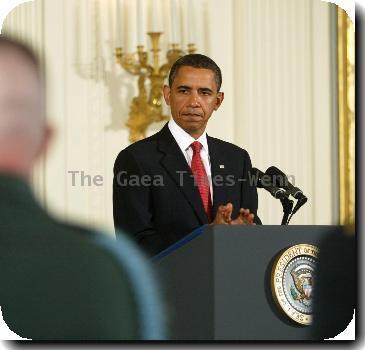Kagan, as Clinton aide, weighed in on abortion, assisted suicide, tobacco negotiations
By Julie Hirschfeld Davis, APFriday, June 4, 2010
Kagan on abortion, assisted suicide in files
WASHINGTON — As an aide to former President Bill Clinton, Supreme Court nominee Elena Kagan helped defend her boss’ veto of a measure that would have banned late-term abortions with few exceptions, according to files handed over to Congress Friday.
Kagan’s memos and notes — part of a 46,500-page batch of records released by the William J. Clinton Presidential Library — reveal her role as the administration was playing defense against a Republican Congress that was trying to impose new limits on abortion rights.
On the late-term abortion bill, “I support an exception that takes effect only when a woman faces real, serious health consequences,” Kagan handwrote on the draft of a letter Clinton was penning to a Catholic bishop dismayed by the veto.
That position angered both abortion rights proponents and foes. But it was typical of a pragmatic streak in Kagan, President Barack Obama’s choice to succeed retiring Justice John Paul Stevens, that’s evident throughout the newly released records.
The files — whose release has been eagerly awaited by senators trying to find clues to what kind of justice Kagan might be — hint at some of Kagan’s policy views on issues that could crop up during her confirmation hearings.
She wrote in 1998 that encouraging a new federal law banning assisted suicide would be “a fairly terrible idea.”
She expressed the opinion in a handwritten note during an internal administration debate over whether doctors in Oregon should be allowed to prescribe fatal drugs to help terminally ill patients commit suicide.
The papers also detail Kagan’s deep involvement in tough negotiations between liberal and conservative lawmakers on an ambitious — and ultimately unsuccessful — anti-smoking initiative.
She warned that slapping tough marketing restrictions on the tobacco industry as part of the measure might be unconstitutional.
“I’m not sure I buy the argument” by other administration officials that First Amendment concerns aren’t a serious issue, she jotted in the margin of a draft letter to a GOP senator on the subject. “We should enable the companies to agree on this.”
It was an example of the middle course Kagan was struggling to steer. One typical memo from her and Domestic Policy Council Director Bruce Reed, says, “(W)e should not ask for more than we need to achieve our public health goals and in the process destroy any chance of industry acquiescence.”
Kagan believed “that having the tobacco industry voluntarily agree to severe limits on marketing to young people was worth a lot more than a law that attempted to stop them from marketing to young people but wouldn’t stand up in court,” Reed said in an interview. “She’s not an ideological person — she’s practical.”
The files are contained in the first installment of a 160,000-page trove of records from Kagan’s service in the former president’s White House. The Senate Judiciary Committee requested the papers last month, and the nation’s archivist promised to turn them over in time for Kagan’s confirmation hearings, now slated to start June 28.
Friday’s release is from Kagan’s time as deputy director of Clinton’s Domestic Policy Council, where she served from 1997-99. All but about 200 pages of the material were made public. Clinton asked to keep the rest secret, so they were handed over to the panel on a “committee confidential” basis that bars public access, a White House official said.
Kagan also served as a counsel to Clinton from 1995-96. She stepped aside last month from her post as Obama’s solicitor general to focus on winning confirmation.
Republican senators and conservative activists have complained that Kagan’s views and judicial style remain a mystery because the public record from her professional past is so thin. The former Harvard Law School dean has never served as a judge, has little courtroom experience and published relatively little during her years in academia.
Sen. Patrick Leahy, D-Vt., the chairman of the Senate Judiciary Committee, and its ranking Republican, Sen. Jeff Sessions of Alabama, requested the Clinton-era documents two weeks ago.
Leahy on Friday said the library had turned over “an unprecedented volume of information” that should be available in advance of the scheduled hearings.
Sessions, however, said that the documents were emerging too slowly to allow senators a fair chance to fully evaluate Kagan.
“With each day that passes, I become more concerned that we will not receive documents in time for a proper review, or that they will be incomplete,” he said in a statement.
Sessions has warned that he would ask for a delay unless the files were produced well in advance. Republicans don’t have the power to change the hearing date, but they could seek to prolong the session or delay a committee vote on Kagan’s nomination.
Tags: Barack Obama, Bill Clinton, Death And Dying, Government Regulations, Industry Regulation, Judicial Appointments And Nominations, Legislature Hearings, North America, Suicides, United States, Washington


